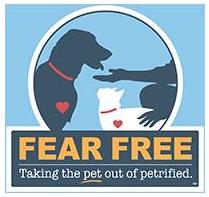
Nutrition is a key factor in the health of aging cats, and the nutritional needs of cats change as they age. While obesity is a common health problem for all cats, older cats are more likely to be overweight due to decreased activity and reduced daily energy needs. Obesity increases the risk of serious diseases and health problems, such as diabetes, and cardiovascular, respiratory, and musculoskeletal disorders.
Although some medical conditions (especially metabolic diseases like an underactive thyroid gland) can cause obesity, over-feeding generally is the culprit. As a senior cat’s metabolism slows, caloric needs decline. If you do not adjust the food intake of your older cat, weight gain is likely to result. If your cat is already overweight, a weight loss program should be considered. First, however, the cat should be thoroughly evaluated by your veterinarian to identify any medical problems that could be causing weight gain.
Generally, recommendations for weight loss in senior cats are very similar to recommendations for people seeking to lose weight. Program steps include:
- limiting the amount of calories consumed,
- feeding two or three small meals (instead of one large meal) daily to increase the amount of energy used to digest food,
- increasing exercise to burn more calories,
- modifying behavior to prevent regaining the lost weight. A daily or weekly log of exercise duration and pet weight yields the best results.
Selecting a food for your senior cat has been made easier thanks to recent advancements in senior nutrition. Pet foods are now available that have been formulated with fewer calories, more protein, antioxidants, and vitamins to meet the specific nutritional needs of senior cats, as well as diets formulated especially for weight loss.
Exercise is an important part of a senior cat’s weight management program. A few extra minutes of play time each day may be just what your senior cat needs to help control weight and stay in shape. Exercise increases energy use and promotes more efficient calorie burning, as well as toning muscles.
Before starting any exercise program with your senior cat, check with your veterinarian to make sure your plans are suited to your pet’s physical condition. Then begin slowly, by adding 5 minutes of play time per day for your cat. Depending on your cat’s condition, you can increase each week until you are up to 15 minutes of play time. Don’t forget—your cat’s exercise program can reap health benefits for you, too!









